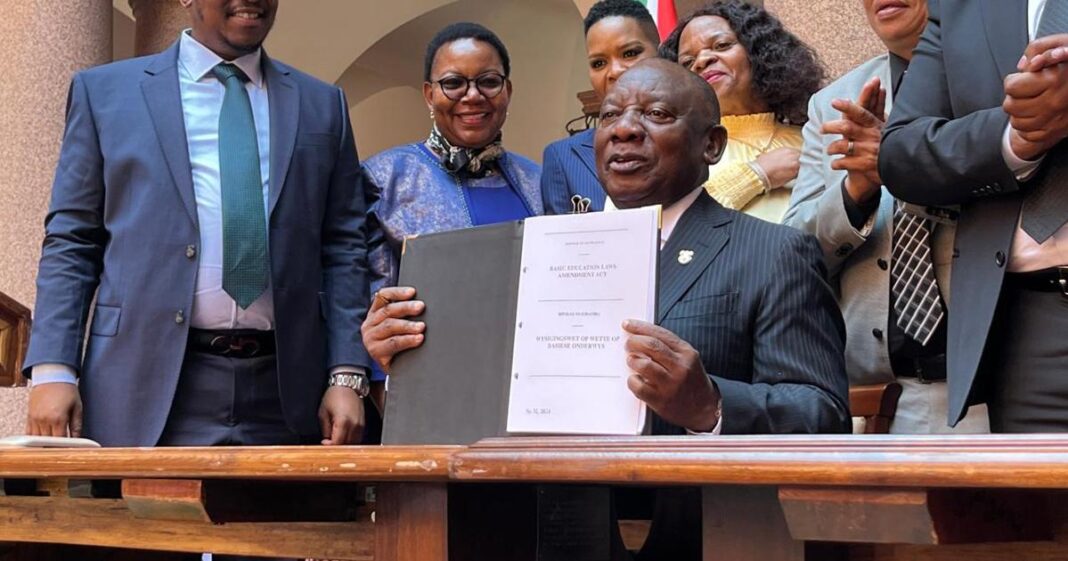By Simon Nare and Lungile Ntimba
President Cyril Ramaphosa has defended his decision to sign the Basic Education Laws Amendment Bill, saying the Constitution obliged him to do so.
In his weekly Monday newsletter, Ramaphosa said he had to listened to the voices of political parties within the Government of National Unity (GNU) who had pleaded with him to reconsider clauses 4 and 5 which dealt with school admissions and language policy.
The president said he had to listened to other voices even though the Bill had gone through the parliamentary process.
“The Constitution is quite clear on the responsibilities of the president with respect to signing legislation. Once a Bill has been passed by Parliament, the President must either assent to the Bill or, if they have reservations about its constitutionality, refer it back to Parliament. Since, after considering all the various submissions, I had no such reservations about the BELA Bill, the Constitution obliged me to assent to it.
“However, even as I signed the Bill, I noted that some of the parties in the GNU said they wanted to engage each other on parts of the Bill dealing with issues of school admissions and language. To give the parties time to discuss these issues, I said we would delay implementation of the Act in order for parties to engage and come up with proposals, if any, on the relevant clauses,” said Ramaphosa.
He added that in accommodating the other parties within the GNU, he was establishing a culture of openness and dialogue.
“We are also drawing on a long history in South Africa of engagement among parties on matters on which they seem far apart. At times, agreement can be reached when matters come to a head at the last minute, enabling all parties to focus on finding solutions and discovering that there is more that unites them than what separates them.
“We cannot guarantee that the parties that have requested timeout to engage will reach agreement on every difficult issue. But we need to make every effort to find common ground,” he said.
Ramaphosa has come under fire from various quarters for his decision, with the tripartite alliance partners saying that they had been blindsided as he had committed to signing the Bill into law only to delay implementing some clauses.
Meanwhile, Cosatu education affiliate Sadtu has questioned Basic Education Minister Siviwe Gwarube’sdedication in implementing the legislation.
The union has called on the minister, who is a Democratic Alliance member, to rise above party politics and serve the government and the people as appointed.
Sadtu general secretary Mugwena Maluleke said Gwarube“boycotting” the signing ceremony left a a bad impression.
“This is just the beginning, where the minister will be instructed by Helen Zille not to be part of the signing because Zille is another super president of our country,” said Maluleke.
He said Gwarube must decide if she wanted to serve the government, and if not, she must resign because shecould not serve two bosses.
Gwarube has said she was engaging the president on herobjections.
INSIDE POLITICS

